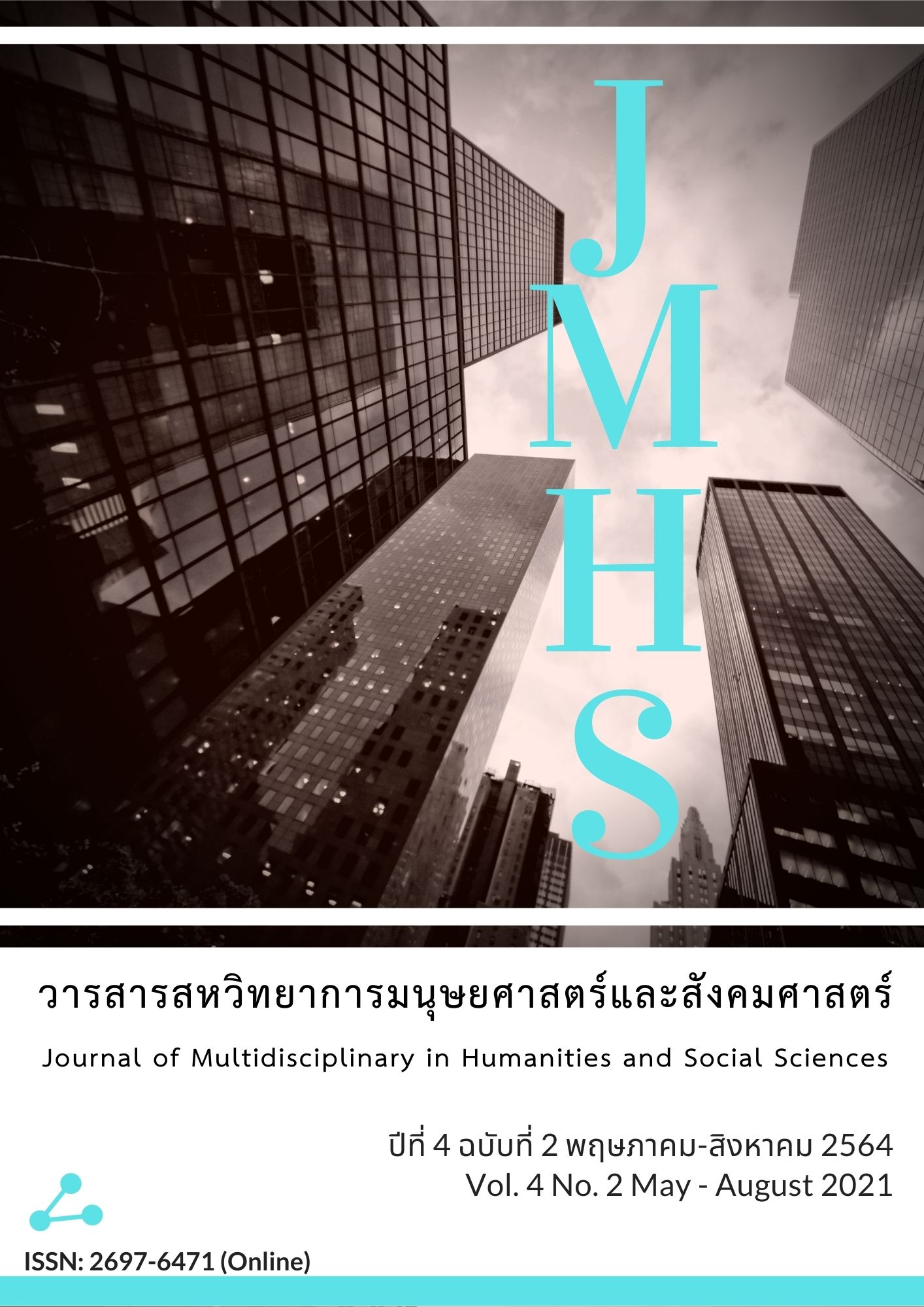A Model for Using Buddhist Dhammas to Promote the Service of Automobile Repair Shops in Khueang-Nai District, Ubonratchathani Province
Main Article Content
Abstract
The objectives of this research were: 1) to study the use of Buddhist dhammas for promoting the services of an establishment; 2) to study the use of Buddhist dhammas for promoting the services of Automobile Repair Shops in Khueang-Nai District, Ubonratchathani Province; and 3) to analytically study the use of Buddhist dhamma for promoting the services of Automobile Repair Shops in Khueang-Nai District, Ubonratchathani Province. This study was carried out by means of the qualitative research methodology through investigating the documents and fieldwork to conduct the interviews. The obtained data were interpreted by the descriptive analysis.
The research results were as follows: Buddhist dhammas for promoting the services of an establishment included: Seven Sappurisadhamma (Seven Qualities of a Good Man), Diṭṭhadhammi-kattha (Temporal Welfare), Pāpaṇika-Dhamma (Qualities of a Successful Businessman), Saṅgahavatthu (Based of Social Solidarity), Iddhipāda (Paths of Accomplishment) and Sucarita (Good Conduct). The use of Buddhist principles can be applied in activities and work. The analysis of the use of Buddhist dhamma for promoting the services of Automobile Repair Shops in Khueang-Nai District, Ubon-ratchathani Province indicated seven types of promotion: 1) Product: Pāpaṇika-Dhamma including shrewd, capacity of administering business and having a good credit rating should be used; 2) Price: Diṭṭhadhammikattha including achievement of diligence, achievement of protection, association with good people, living economically should be applied; 3) Distribution channels: Seven Sappurisa-dhamma including to know time, community and people should be used; 4) Marketing: Pāpaṇika-Dhamma including to please customers should be used; 5) Person: Sappurisa-dhamma, Iddhipāda, Sucarita used in terms of knowing oneself, having diligence, thoughtfulness and honesty should be used; 6) Creating and presenting physical characteristics: Sappurisa-dhamma including to know oneself according to one’s own status should be used; 7) Process: Saṅgahavatthu including to perform useful conducts should be applied.
Article Details
Views and opinions appearing in the Journal it is the responsibility of the author of the article, and does not constitute the view and responsibility of the editorial team.
References
ขจรศักดิ์ วงศ์วิราช และ บุญฑวรรณ วิงวอน. (2563). อิทธิพลของภาวะการเป็นผู้ประกอบการ การบูรณาการองค์ความรู้ และนวัตกรรมที่มีต่อผลการดำเนินงานของวิสาหกิจชุมชนในพื้นที่ภาคเหนือตอนบน. วารสารศิลปการจัดการ, 4(2), 308-324.
จันทร์จิรา สุวรรณรังสี. (2553). ศึกษาพฤติกรรมและปัญหาการใช้บริการตรวจเช็ครถยนต์ในเขตอำเภอเมือง จังหวัดเชียงใหม่(วิทยานิพนธ์ธุรกิจมหาบัณฑิต). มหาวิทยาลัยพายัพ.
ชัชวาล น้ำเย็น. (2555). แนวทางการพัฒนาการให้บริการดูแลบำรุงรักษารถยนต์ (อู่ซ่อมรถ): กรณีศึกษาผู้ใช้รถยนต์นั่งส่วนบุคคล (วิทยานิพนธ์บริหารธุรกิจมหาบัณฑิต). มหาวิทยาลัยราชภัฏภูเก็ต.
นิตนา ฐานิตธนกร. (2555). ปัจจัยที่มีผลต่อการตัดสินใจเลือกใช้บริการอู่ซ่อมรถยนต์(รายงานการวิจัย). มหาวิทยาลัยกรุงเทพ.
พระเทพปริยัติเมธี. (2553). ภาวะผู้นำเชิงพุทธกับการจัดการความขัดแย้งในสังคมไทย(รายงานการวิจัย). มหาวิทยาลัยมหาจุฬาลงกรณราชวิทยาลัย.
พระพรหมคุณาภรณ์ (ป .อ. ปยุตฺโต). (2556). พจนานุกรมฉบับประมวลศัพท์. (พิมพ์ครั้งที่ 21). กรุงเทพฯ: เพ็ทแอนด์โฮม.
พัชร สมะลาภา. (2563, 1 มีนาคม). ประชาชาติธุรกิจออนไลน์. สืบค้นเมื่อ 20 มีนาคม 2563, จาก http://www.prachachat.net/news_detail.php?newsid=1432711854
สุมาลี สุขอร่าม. (2554). การประยุกต์ใช้พุทธจริยธรรมในการประกอบธุรกิจ กรณีศึกษาบริษัทแฟรี่แลนด์สรรพสินค้า จำกัด นครสวรรค์(วิทยานิพนธ์พุทธศาสตรมหาบัณฑิต). มหาวิทยาลัยมหาจุฬาลงกรณราชวิทยาลัย.
โสภิน โพยมรัตนสิน และ วัฒนา อร่ามเธียรธำรง. (2563). ปัจจัยที่มีผลต่อการใช้เทคโนโลยีสารสนเทศในการปฏิบัติงานของส่วนราชการ กรณีศึกษากรมส่งเสริมอุตสาหกรรม กระทรวงอุตสาหกรรม. วารสารศิลปการจัดการ, 4(1), 73-84.
อัมพวรรณ หนูพระอินทร์ และ ธีราวรรณ จันทร์แสง. (2563). โลจิสติกส์กับการพัฒนาอุตสาหกรรมไทยยุค 4.0. WMS Journal of Management, 9(1), 118-129.


